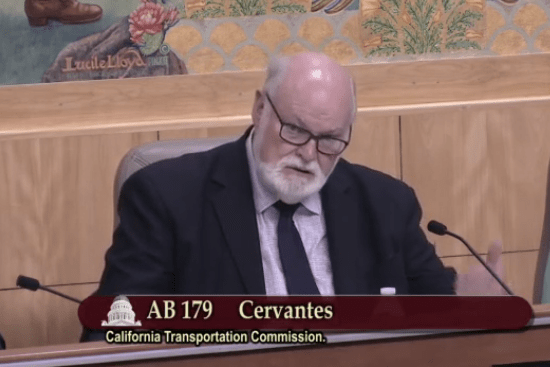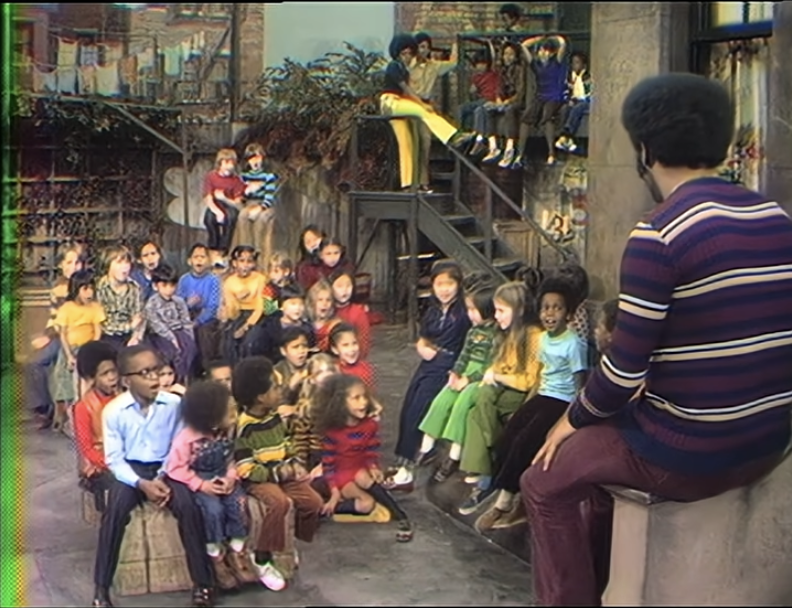The California legislature heads into its summer recess this week, having passed several huge pieces of legislation but leaving a number of other bills hanging. One of those is A.B. 179, which is an attempt to ensure that the concerns of people affected by transportation projects—not just those who use them—would be represented on the California Transportation Commission (CTC).
The CTC decides which transportation projects in the state will get funding and heavily influences policy on what projects to prioritize. Advocates have raised questions about the balance of viewpoints represented on the commission, which comprises mostly pro-highway developers and business leaders.
Nine of the thirteen commissioners are appointed by the governor, and right now the only official restriction on the appointments is that there be a geographic balance—north and south, urban and rural—among commissioners.
A.B. 179, from Assemblymember Sabrina Cervantes (D-Corona), had originally been written to reserve a few of those appointments for people who have experience with communities burdened by pollution. Sponsors of the bill, the California Pan Ethnic Health Network and ClimatePlan, were also asking for the creation of an Environmental Justice Advisory Committee to assist the commission, and specific experience among commissioners in sustainable transportation, transit, the public health effects of transportation, climate change mitigation, and air pollution.
“The California Transportation Commission is a really important body that provides transportation policy recommendations to the legislature,” said ClimatePlan's Chanell Fletcher at this week's Senate Transportation and Housing Committee hearing. “It also provides guidance to regional transportation agencies, as well as oversees a number of transportation funding programs. We've seen staff work very hard to address concerns around transportation policies that can harm disadvantaged communities.”
“We, unfortunately, in our work, haven't seen that leadership with the Commissioners at large,” she said.
But the bill had been amended again before this week's hearing, and the most recent changes weakened it considerably.
A.B. 179 now would require only that the governor “use every effort” to make sure the CTC “has a diverse membership with expertise in transportation issues,” and that in the process of appointing commissioners factors to consider include “socioeconomic background and professional experience, which may include experience working in, or representing, disadvantaged communities.”
The bill was softened because some people were afraid that setting aside one seat for a specific constituency would bring others out of the woodwork. Senator Jim Beall (D-Campbell), chair of the Senate Transportation and Housing Committee, warned that “if we start doing specific appointments, where is that going to end? You're going to continue to have groups come up [asking for representation].” That, he said, would lead to a “balkanized” commission.
It's true that a similar bill was simultaneously making its way through the legislative process. A.B. 174 from Assemblymember Frank Bigelow (R-O'Neals) would have required one seat to be set aside for rural areas—despite there already being a requirement for urban and rural balance on the commission.
Bigelow's bill has been been put on hold for the moment.
But Beall, who sits on the CTC, also emphasized the need to address the issues this bill raises. “We need to have a more diverse state transportation commission,” he said. “It is imperative that we have all viewpoints in this new era. . . California needs to have viewpoints [representing] of all the ideas we need to make transportation work in California, and also deal with socioeconomic environmental issues. It's very complex.”
In addition, he emphasized the importance of the bill as a statement from the legislature “that we want to have diversity on our commissions.”
The sponsors of the bill were sanguine about the amendments. Kimberly Chen of the California Pan Ethnic Health Network said at this week's hearing that “the CTC has a tremendous opportunity to set transportation planning across the state toward a more robust health and equity framework. A.B. 179 takes the first steps towards ensuring the Commission has the expertise to prioritize and meet this opportunity.”
ClimatePlan's Chanell Fletcher noted afterwards that although the bill no longer requires a seat specifically for environmental justice experts, “We are pleased to see that the bill reinforces the need for diversity, and pushes the Governor to appoint members who have experience in the transportation issues of, and can represent the needs of, disadvantaged communities.”
“We're also happy to see that coordination with [the Air Resources Board] is still a part of this bill. Overall, we still feel that this bill is a step in the right direction for the CTC to increase its diversity.”






